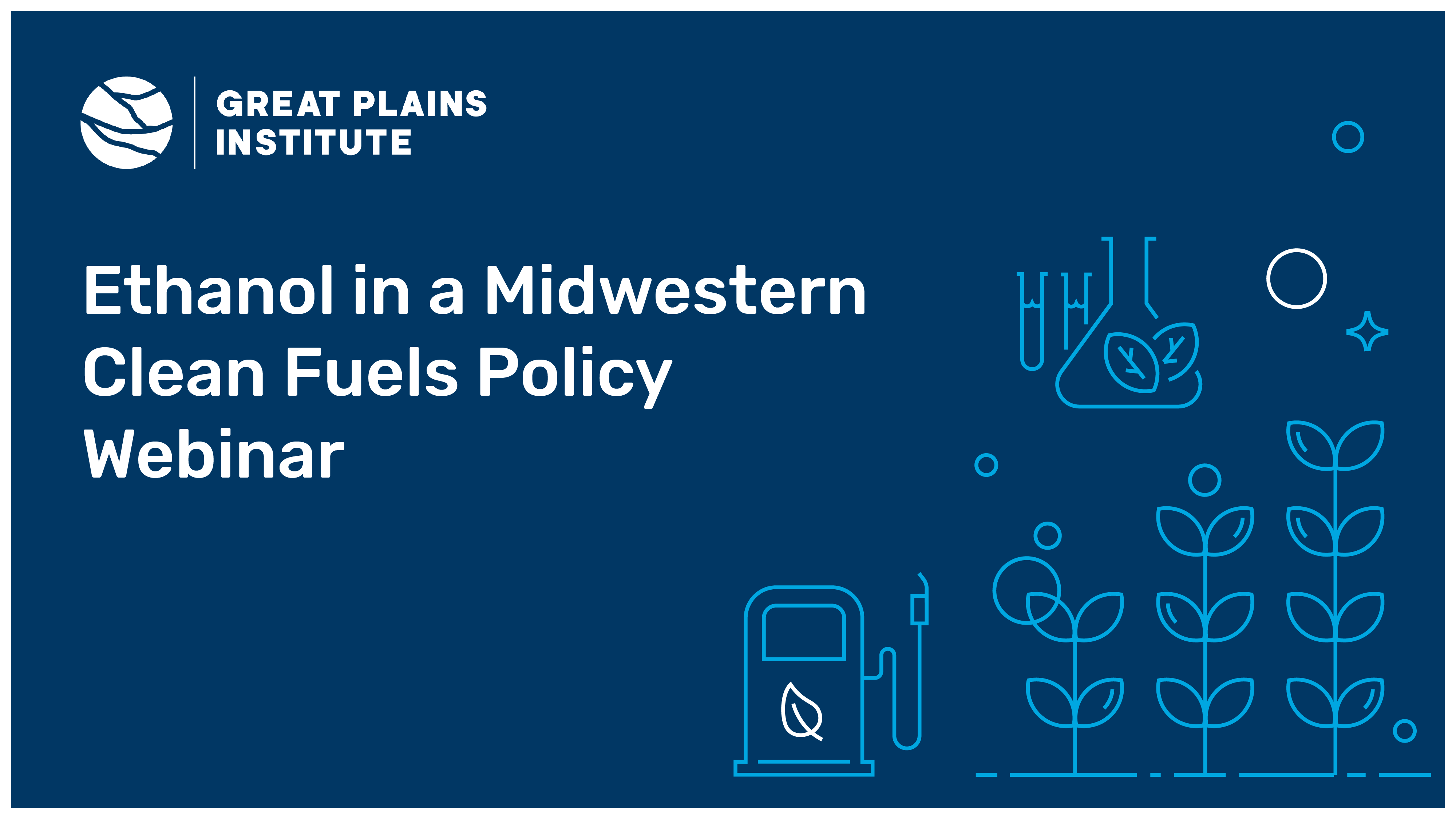Ethanol in a Midwestern Clean Fuels Policy
January 5, 2021 | Hannah Haas | Education

As part of the Great Plains Institute’s work to develop a Midwestern clean fuels policy, we are hosting webinars that focus on clean fuels in the market today and how those industries could benefit from a regional policy. In the first three webinars, GPI looked at the role of electric vehicles (in two webinars) and renewable natural gas in a potential Midwestern clean fuels policy. The fourth webinar in the series discussed how a Midwestern clean fuels policy can support the ethanol industry across the supply chain in the region.
Key takeaways from the ethanol webinar:
- The production and adoption of ethanol reduces transportation sector emissions and creates sustainable jobs.
- A Midwestern clean fuels policy could support the ethanol industry’s adoption of technology innovations to reduce the carbon intensity of ethanol production and compensate farmers for voluntary sustainable agricultural practices that reduce emissions on the farm.
- Forthcoming GPI analysis shows that lower carbon intensities of ethanol would have important environmental and economic benefits in addition to market potential in a regional clean fuels policy.
As described in our soon-to-be published Midwestern Clean Fuels Policy 101, “A clean fuels policy is a technology-neutral, performance-based policy that reduces the use of high-carbon transportation fuels while providing incentives to deploy lower-carbon alternatives such as electricity, hydrogen, and biofuels.” A Midwestern clean fuels policy could be a game changer when it comes to reducing emissions from the transportation sector, the region’s largest contributor to greenhouse gas emissions.
Similar policies are major drivers for ethanol in markets like California’s Low Carbon Fuel Standard and Oregon’s Clean Fuels Program.
The ethanol webinar explored how a clean fuels program could benefit the ethanol industry and how ethanol pathways could generate credits under a clean fuels policy.
Speakers included:
- Brian Jennings, American Coalition for Ethanol
- Jessi Wyatt, Great Plains Institute
- Kelly Nieuwenhuis, Iowa Corn
- Michael Walz, POET
- Neil Koehler, Pacific Ethanol and Renewable Fuels Association
- Ron Alverson, farmer
Watch the full webinar
The previous webinars on a clean fuels policy can be viewed here. The Midwestern clean fuels policy webinars will continue through early 2021. Future topics include biodiesel, renewable diesel, and others. At each webinar, a fuel-specific case study is released for feedback, laying out the GPI research team’s analysis. If you would like to be on the invitation list and be the first to see the GPI analysis, please contact Hannah Haas at [email protected].
